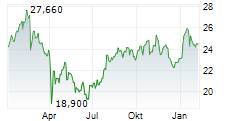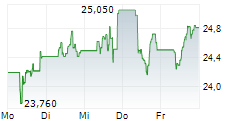Demonstrated at LINNC Paris 2025, the company's latest release of SmartCT delivers fast, intelligent 3D imaging in the Angio suite - helping physicians act with greater speed and confidence during a range of critical neurovascular procedures
Amsterdam, the Netherlands - Royal Philips (NYSE: PHG, AEX: PHIA), a global leader in health technology, today announced the CE-marking of its latest SmartCT image reconstruction solution designed to support faster, more informed decision-making in the treatment of stroke and other neurovascular conditions. Already available in Japan and Canada, SmartCT is now CE-marked and available across Europe. The solution will be showcased at LINNC Paris 2025 (June 2-4), the world's leading interventional neuroradiology congress.
Built for the Philips Azurion neuro biplane system, the latest generation of SmartCT simplifies and accelerates 3D imaging - giving neuro interventionists real-time views of brain tissue, blood vessels, and interventional devices directly in the Angio suite. By removing the need to transfer patients for separate CT imaging, SmartCT helps care teams treat faster, with greater clarity and confidence.
"In stroke care, minutes matter - and confidence is everything," said Dr. Atul Gupta, Chief Medical Officer Diagnosis & Treatment at Philips. "With this latest generation of SmartCT for intelligent 3D imaging applications, we're giving neuro interventionalists the imaging tools they need at the exact moment they need them - improving workflow, reducing delays, and ultimately helping to save lives."
Already used by clinicians at many leading stroke centers worldwide, SmartCT enables a streamlined workflow that reduces procedural complexity and supports timely intervention. This enables physicians to personalize therapy and reduce uncertainty during time-critical procedures like mechanical thrombectomy- a minimally invasive treatment to remove blood clots and restore blood flow to the brain during an ischemic stroke.
"The image quality of the helical cone-beam CT is impressive-it's almost like a conventional CT scan," said Dr. Shuta Aketa, Director of the Stroke Center at the Osaka International Medical & Science Center. "This is ideal for emergency procedures, as the image quality meets our needs and helps us work more efficiently."
Dr. Junji Fukumori, Chief of Neurovascular Intervention of the same hospital added "Compared to other vendors, Philips SmartCT technology allows for more confident and safe treatment of complex cases."
SmartCT 3.0 includes:
- SmartCT Soft Tissue Helical delivers cone-beam CT (CBCT) imaging in as little as 8 seconds. It offers improved image appearance of cerebral soft tissue volumes by optimizing acquisition trajectory and reconstruction.
- Motion-compensated soft tissue imaging for restless stroke patients
- SmartCT Dual Phase Cerebral enables clear visualization of vessel occlusions and collateral blood flow in stroke patients, aided by intuitive acquisition guidance and bolus timing tools.
- SmartCT Dual Viewer allows physicians to overlay and manipulate two 3D volumes side-by-side at table side, supporting real-time image fusion and enhanced procedural planning without breaking sterility.
At LINNC Paris 2025 (June 2-4, Carrousel du Louvre), Philips will host interactive demos of its latest generation Azurion biplane with SmartCT 3.0 for neuro-endovascular treatments.at Booth #28. For more information about the Philips Image-Guided Therapy System Azurion, visit our website: www.philips.com/biplane.
For further information, please contact:
Joost Maltha
Philips External Relations
Tel.: +31 6 10558116
E-mail: joost.maltha@philips.com
About Royal Philips
Royal Philips (NYSE: PHG, AEX: PHIA) is a leading health technology company focused on improving people's health and well-being through meaningful innovation. Philips' patient- and people-centric innovation leverages advanced technology and deep clinical and consumer insights to deliver personal health solutions for consumers and professional health solutions for healthcare providers and their patients in the hospital and the home.
Headquartered in the Netherlands, the company is a leader in diagnostic imaging, ultrasound, image-guided therapy, monitoring and enterprise informatics, as well as in personal health. Philips generated 2024 sales of EUR 18 billion and employs approximately 67,200 employees with sales and services in more than 100 countries. News about Philips can be found at www.philips.com/newscenter.




